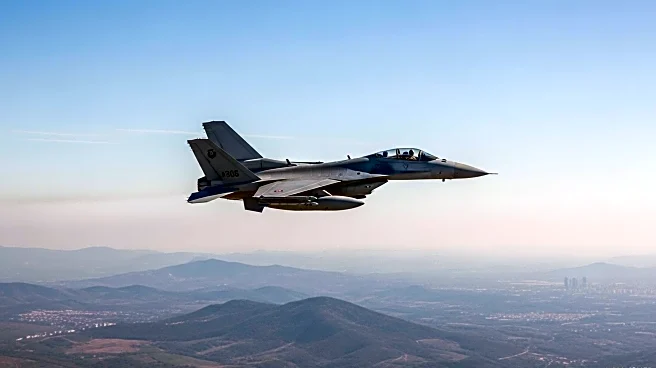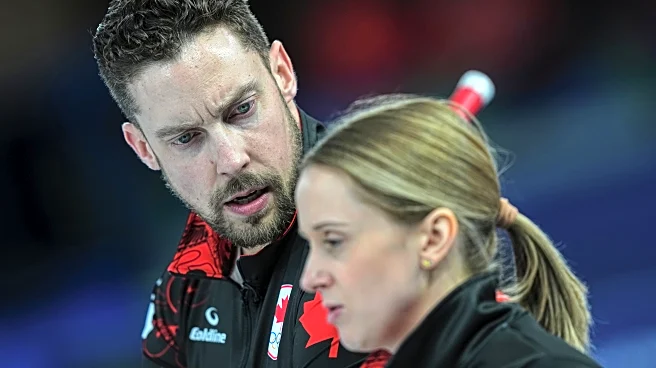What's Happening?
German Minister of Defense Boris Pistorius has called for restraint in response to Russian jets entering NATO airspace, emphasizing the importance of avoiding escalation. Pistorius noted that while these incursions are dangerous, there has been no aggressive behavior from Russian pilots that would warrant a physical intervention. He cautioned against calls to shoot down Russian aircraft, suggesting that such actions could play into Russian President Vladimir Putin's strategy of escalation. The German defense minister highlighted the importance of responsibility towards peace in Europe, advocating for prudence rather than aggressive responses. This stance comes amid public discourse advocating for stronger measures following incidents such as the overflight of drones in Poland earlier in September. NATO and its member states have reiterated their readiness to defend their airspace if necessary.
Why It's Important?
The call for restraint by the German defense minister is significant in maintaining stability in Europe amidst ongoing tensions with Russia. By advocating for a measured response, Germany aims to prevent potential military escalation that could arise from aggressive actions. This approach seeks to balance the need for security with the risk of provoking further conflict. The stance taken by Germany may influence other NATO members in their response strategies, potentially shaping the alliance's overall approach to airspace violations. The emphasis on prudence reflects a broader commitment to peace and stability in the region, which is crucial given the geopolitical complexities involving Russia.
What's Next?
Germany and Sweden are deepening their defense relationship, with plans for joint procurement projects such as the IRIS-T SLM air defense missiles. Additionally, Sweden's Saab GlobalEye is being considered to fill Germany's capability gap in airborne early warning and control, following the retirement of NATO's E-3 Sentry aircraft. These developments indicate a strengthening of defense ties between the two countries, which could enhance NATO's overall defense capabilities. The decision on the Saab GlobalEye is pending, but it represents a potential shift in defense strategy for Germany.
Beyond the Headlines
The restraint advocated by Germany highlights the ethical considerations in military responses, emphasizing the importance of avoiding unnecessary conflict. This approach underscores the need for careful diplomatic and military strategies in dealing with international provocations. The collaboration between Germany and Sweden in defense procurement also reflects a shift towards more integrated European defense initiatives, which could have long-term implications for regional security and cooperation.











